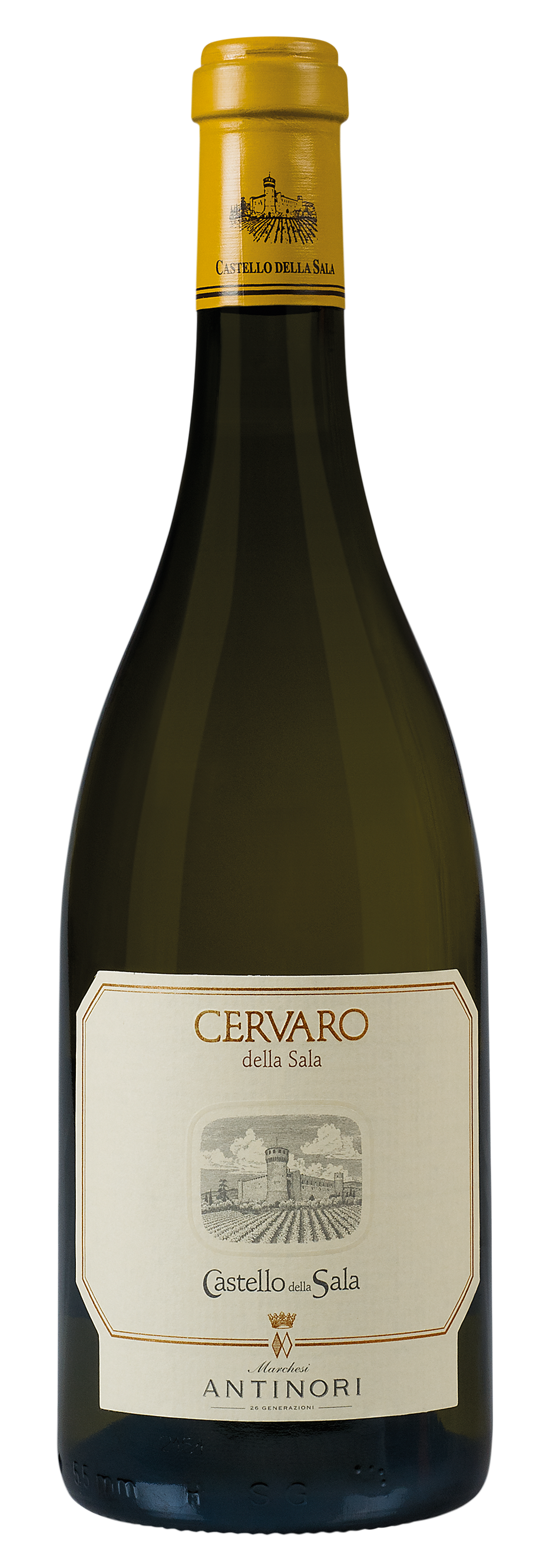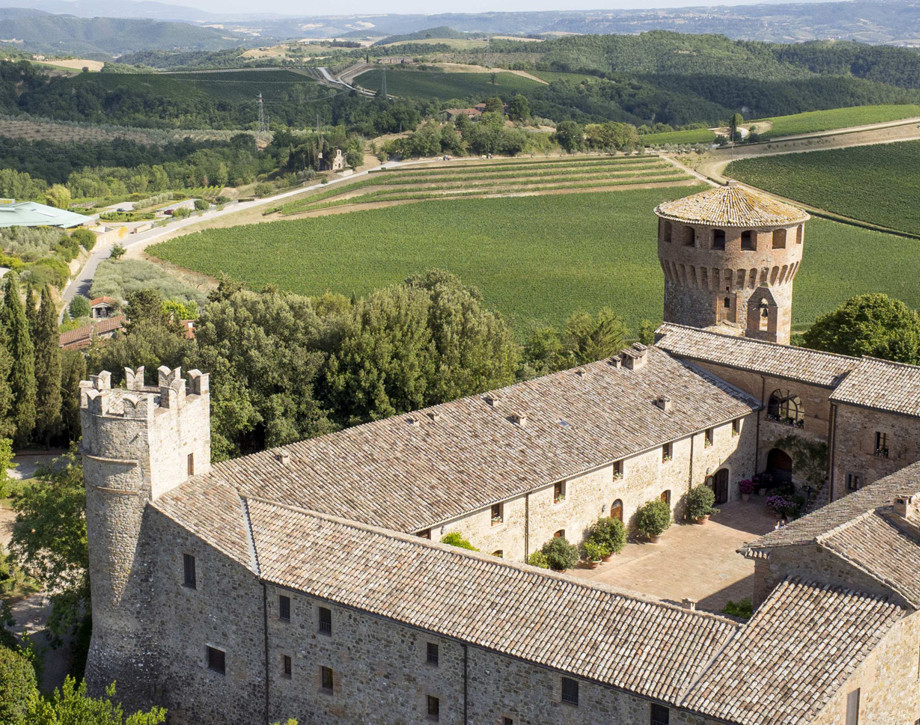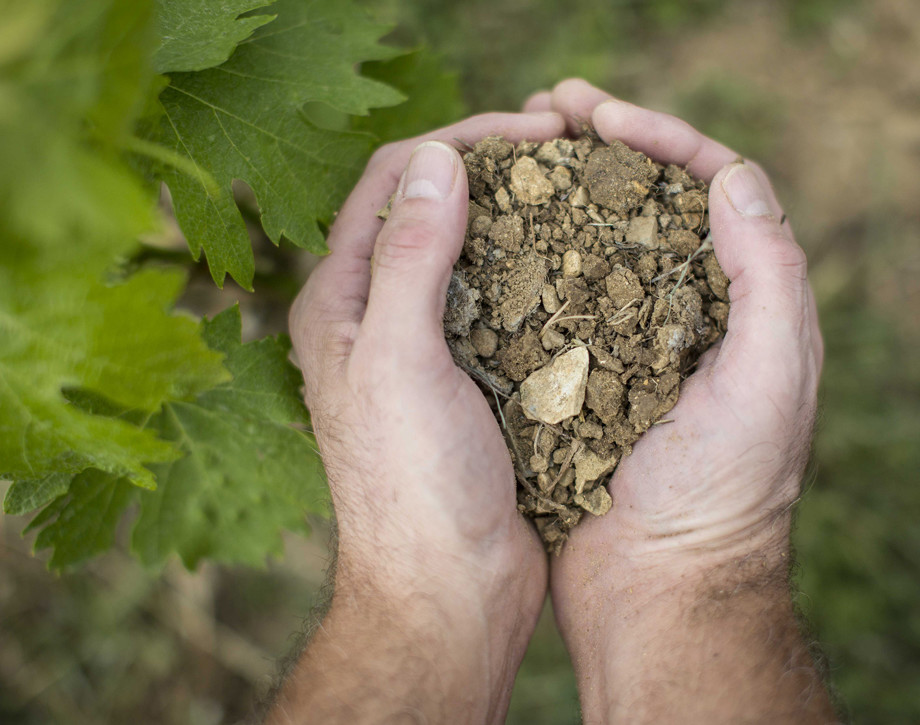Cervaro della Sala 2018
Climate
The 2018 vintage was, in general, a fresh one distinguished by occasional light precipitation capable of correctly favoring the cycle of the vine. The month of January was mild and with little rainfall, while the end of February and the beginning of March were marked by lower than average temperatures and snow followed by above average rains which contributed to re-balancing the supply of ground water in the soil. The regular rainfall of late spring slightly slowed the phase of the growth of the berries. The climate, warm on the whole, was characterized from July on and during the entire month of August by excellent temperature swings between daytime warmth and evening and nighttime coolness which favored a gradual and continuous ripening of the crop. The picking of the Chardonnay for the Cervaro della Sala began with healthy grapes during the last ten days of August, ripe and with a high-level aromatic profile, while the harvest of the Grechetto took place some fifteen days later.
Vinification
The castle’s fermentation cellars were constructed to take full advantage of the principle of gravity and assists the movement of the grapes and their maceration without the crop being pumped or subjected to mechanical movement of the mass. The picking of the grapes takes place during the very first hours of the day so that the cellars receive fruit in pristine condition, without the influence of the higher and warmer temperatures of the day. The must is treated to a maceration on its skins for four hours at a temperature of 50 °Fahrenheit (10 °Centigrade) and subsequently falls into stainless steel fermentation tanks where it loses its impurities before going into small oak barrels. Here it fully ferments and then is put through a complete malolactic fermentation. After five months of aging, the Chardonnay is usually ready to be blended and to go back into stainless steel, where it is assembled with the Grechetto, which has been fermented, separately, on its own, without contact with wood. The Cervaro della Sala is then aged in bottle for various months in the Castello della Sala cellars before being placed on the market.
Tasting Notes
The 2018 Cervaro della Sala is a luminous straw yellow in color streaked with occasional greenish highlights. The nose shows light toasted notes accompanied by aromas of citrus fruit, tropical fruit, and hints of butter. The palate is notably savory and fresh, con characteristics of chamomile, white fruit, and flint along with a pleasurable persistence and tasting depth. Its youth, although already inviting and enjoyable, announces much capacity for aging. The wine, still quite young, will evolve in an optimal fashion in the years to come.
Awards
Wine Advocate 96/100 USA

The Wine
The name Cervaro comes from the noble family that owned Castello della Sala during the 14th century, Monaldeschi della Cervara. A blend of Chardonnay grapes and a small quantity of Grechetto make a wine that can age over time and represent the elegance and complexity of this unique estate. Cervaro della Sala is one of the first Italian white wines to have malolactic fermentation and aging take place in barriques. The first vintage of Cervaro to be produced was the 1985 vintage.

In Honor of the Monaldeschi della Cervara Family
The wine’s name honors the Monaldeschi della Cervara family who was the historic owner of Castello della Sala in the XVI century.
The Barrique
Cervaro della Sala was one of the first Italian white wines to have malolactic fermentation and aging take place in barriques.
The Concept
The idea behind Cervaro della Sala was to craft a white wine able to age over time.
The Enologist
In 1985, Renzo Cotarella, who was chief enologist at Castello della Sala at that time, made the first vintage of Cervaro della Sala.
Climate
The 2022 growing season in Orvieto began with warmer temperatures and dry conditions during both winter and spring. The month of June saw no precipitation and registered several heat spikes. Despite these climatic conditions, the vines did not suffer drought stress due to existing pedoclimatic conditions in Castello della Sala’s vineyards. Rain showers at the beginning of August revitalized both the vines and fruit allowing the grapes to reach optimal ripeness. This year’s dry weather ensured perfectly whole, healthy berries, minimized vineyard maintenance, and produced well-balanced, healthy fruit with a good aromatic profile. Harvesting activities of Chardonnay for Cervaro della Sala, which was of exceptional quality, got underway the third week of August. The grapes were fully mature, with outstanding freshness and had an excellent aromatic profile. Grechetto was harvested three weeks later, towards mid-September.
Vinification
The vinification cellar was designed to take full advantage of gravity flow; a concept that allows us to handle the harvested berries and fermentation processes as gently as possible without the use of mechanical pumps. The grapes are harvested in the early morning hours to preserve the purity of the fruit and protect it from elevated daytime temperatures. The must, which has undergone maceration on the skins at a temperature of 10 °C (50 °F) for about four hours, is first transferred by gravity flow into tanks for decantation and clarification, then transferred into barriques where alcoholic fermentation takes place followed by partial malolactic fermentation. In February, Chardonnay is ready to be transferred back into stainless steel vats and blended with Grechetto, which was fermented separately and did not age in oak. Afterwards, Cervaro della Sala aged in the bottle for several months in Castello della Sala’s historic cellars before being released for sale.
Historical Data
The name Cervaro comes from the noble family that owned Castello della Sala during the 14th century, Monaldeschi della Cervara. A blend of Chardonnay grapes and a small quantity of Grechetto make a wine that can age over time and represent the elegance and complexity of this unique estate. Cervaro della Sala is one of the first Italian wines to have malolactic fermentation and aging take place in barriques. The first vintage of Cervaro to be produced was the 1985 vintage.
Tasting Notes
Cervaro della Sala 2022 is a light straw yellow in color with greenish hues. The nose presents slight smoky notes of cedar and flint followed by floral hints of Spanish broom and mimosa blossoms. The palate is vibrant, fresh characterized by notes of vanilla, lemon butter and small pastries. Cervaro della Sala has outstanding aging potential but can be enjoyed immediately.

Castello della Sala
Castello della Sala is located in the Umbria region, not far from the Tuscan border, about 18 kilometers from the historic city of Orvieto. The Medieval castle’s property extends over an area of 600 hectares (1482 acres), 229 hectares (495 acres) are planted with vineyards at an altitude that varies between 220 and 470 meters above sea level (722/1541 feet) on the gently rolling hillsides that characterize the beautiful countryside in this area. Castello della Sala is the perfect place for growing white varieties. The vines grow in clay and calcareous based soils, rich in fossil shells, and they are well exposed to the rising of the sun with an excellent difference of temperature between day and night. The one exception to the rule is Pinot Noir, the only red variety that has found in this area ideal growing conditions to best express its full potential.

Soil
Originating in the Pliocene period, rich in marine fossils with veins of clay.


















